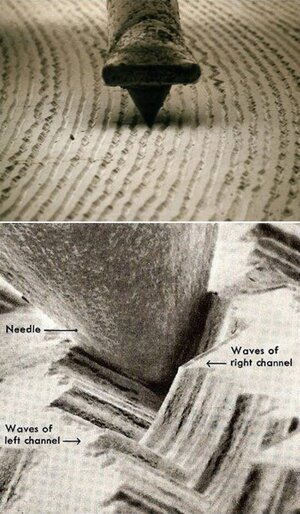Subject: What Makes a Good Turntable Good? Seeking Genuine Understanding, Not Just Hype
Dear fellow audio enthusiasts,
I’d like to open a respectful discussion—born out of curiosity rather than critique—about what truly makes a good turntable good, and more specifically, what makes a great turntable command prices north of £10,000 while others, like the Rega Planar 1, can still offer a musically satisfying experience for a fraction of the price.
From where I stand, when I look at most turntables—whether they’re entry-level or costlier than a used car—I still see the same fundamental ingredients:
– A 12-inch platter rotating at a stable speed
– A tonearm
– A cartridge with stylus
– And either a belt or direct drive system
So what exactly transforms these elements into a truly special machine?
Let me be clearer with an example:
If I use the same cartridge on a modest Rega Planar 1 and then on a high-end Michell Engineering Orbe or SME Model 15, what exactly am I supposed to hear that justifies such a massive price difference? Is it lower noise floor? Better speed stability? More detail retrieval? Or is it the sense of timing, tonality, or musical flow? I'd love to hear how others would describe the sonic differences.
And a bigger question still: Does a turntable have to be expensive to sound transcendent—or is there a certain point after which the law of diminishing returns kicks in hard, and we start chasing marginal improvements for exponential cost?
Please don’t get me wrong—I’m not doubting the value of fine engineering or craftsmanship. I come from the school of thought that appreciates good audio design and the beauty of mechanical precision. But at the end of the day, it’s the sound that moves us. So how much of that sonic magic really comes from the turntable itself, assuming the same pickup and phono stage are in play?
Lastly, could someone kindly break down in layman’s terms what exactly contributes to a turntable’s sound? Beyond the obvious physical parts—platter, arm, cartridge, drive—what else is at work? Suspension? Bearing quality? Plinth damping?
I’d be grateful for some technical insight, honest listening impressions, and perhaps a few grounded opinions that might help me (and others) better understand this sometimes mystifying hobby we love so much.
Warm regards,
Reginald Mintoff
Malta
A lover of well-made audio.
Dear fellow audio enthusiasts,
I’d like to open a respectful discussion—born out of curiosity rather than critique—about what truly makes a good turntable good, and more specifically, what makes a great turntable command prices north of £10,000 while others, like the Rega Planar 1, can still offer a musically satisfying experience for a fraction of the price.
From where I stand, when I look at most turntables—whether they’re entry-level or costlier than a used car—I still see the same fundamental ingredients:
– A 12-inch platter rotating at a stable speed
– A tonearm
– A cartridge with stylus
– And either a belt or direct drive system
So what exactly transforms these elements into a truly special machine?
Let me be clearer with an example:
If I use the same cartridge on a modest Rega Planar 1 and then on a high-end Michell Engineering Orbe or SME Model 15, what exactly am I supposed to hear that justifies such a massive price difference? Is it lower noise floor? Better speed stability? More detail retrieval? Or is it the sense of timing, tonality, or musical flow? I'd love to hear how others would describe the sonic differences.
And a bigger question still: Does a turntable have to be expensive to sound transcendent—or is there a certain point after which the law of diminishing returns kicks in hard, and we start chasing marginal improvements for exponential cost?
Please don’t get me wrong—I’m not doubting the value of fine engineering or craftsmanship. I come from the school of thought that appreciates good audio design and the beauty of mechanical precision. But at the end of the day, it’s the sound that moves us. So how much of that sonic magic really comes from the turntable itself, assuming the same pickup and phono stage are in play?
Lastly, could someone kindly break down in layman’s terms what exactly contributes to a turntable’s sound? Beyond the obvious physical parts—platter, arm, cartridge, drive—what else is at work? Suspension? Bearing quality? Plinth damping?
I’d be grateful for some technical insight, honest listening impressions, and perhaps a few grounded opinions that might help me (and others) better understand this sometimes mystifying hobby we love so much.
Warm regards,
Reginald Mintoff
Malta
A lover of well-made audio.


